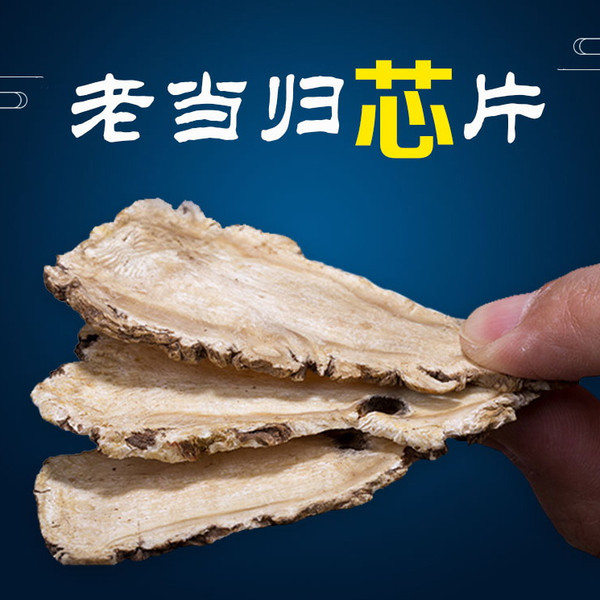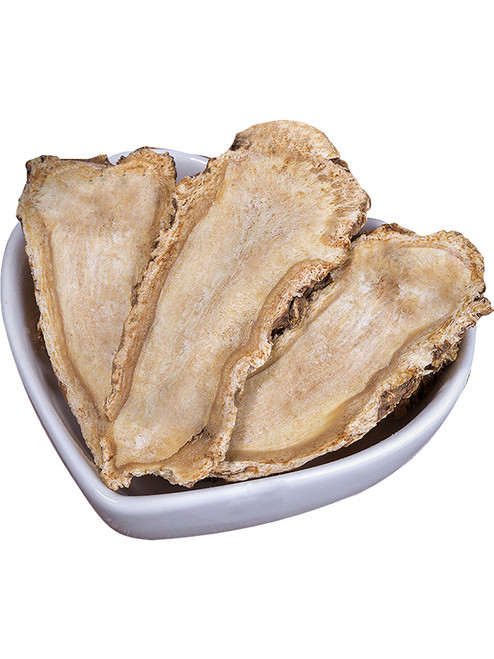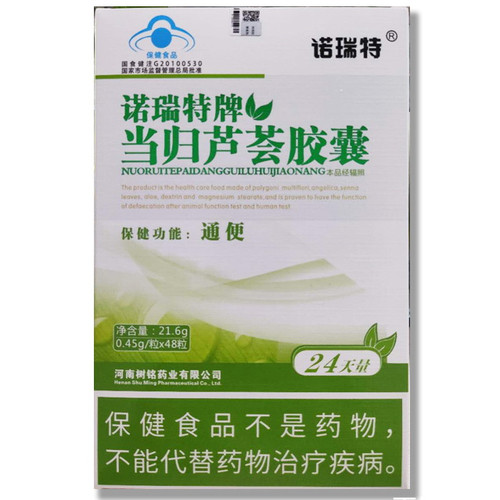Product Overview
Parts used: Dried root
TCM category: Tonic herbs for Blood Deficiency
TCM nature: Warm
TCM taste(s): PungentSweet
Meridian affinity: Spleen Heart Liver
Scientific name: Angelica sinensis
Other names: Female ginseng, Chinese angelica
Use of dong quai (Dang Gui) in TCM
Please note that you should never self-prescribe TCM ingredients. A TCM ingredient is almost never eaten on its own but as part of a formula containing several ingredients that act together. Please consult a professional TCM practitionner, they will be best able to guide you.
Preparation: At the end of fall, the root is picked and cleaned. It is left to dry slightly, bundled into small pieces and smoked slowly. After that it is washed, cut into thin slices and dried.
Dosage: 6 to 12g
Main actions according to TCM*: Tonifies the Blood. Lubricates the Intestines. Relieve constipation. Promotes circulation and dispels Bi Pain. Reduce Dysmenorrhea and help with irregular menstruation.
Primary conditions or symptoms for which dong quai may be prescribed by TCM doctors*: Irregular menstruation Anemia Amenorrhea Dysmenorrhea Constipation Arthralgia Abdominal pain
Contraindications*: Not for those with diarrhea, abdominal distention caused by Dampness or those with Yin Deficiency with Heat signs.
Common TCM formulas in which dong quai are used*:
For postpartum inflammation, septicemia and/or accompanying restlessness combine dong quai with swallow-wort roots (Bai Wei), ginseng (Ren Shen) and liquorice (Gan Cao).
For urinary infections during pregnancy combine dong quai with sophora roots (Ku Shen) and fritillary bulbs (Chuan Bei Mu).
For Yin and Blood Deficiency with constipation caused by a lack of fluids combine dong quai with hemp seeds (Huo Ma Ren) and prepared rehmannia (Shu Di huang).
For Wind-Damp obstruction or rheumatic aches and pains combine dong quai with mistletoe (Hu Ji Sheng), pubescent angelica roots (Du Huo) and clematis roots (Wei Ling Xian).
For Wind-Damp obstruction, stiffness, pain of the limbs and joints combine dong quai with stephania roots (Fang Ji), flowering quince (Mu Gua) and clematis roots (Wei Ling Xian).
For painful menstruation combine dong quai with lindera roots (Wu Yao) and szechuan lovage roots (Chuan Xiong).
For abnormal uterine bleeding combine dong quai with lotus roots (Ou Jie) and motherwort herbs (Yi Mu Cao).
For irregular menstruation with pain combine dong quai with red sage roots (Dan Shen) and motherwort herbs (Yi Mu Cao).
For joint pains caused by Blood Stagnation combine dong quai with achyranthes roots (Niu Xi), szechuan lovage roots (Chuan Xiong) and red sage roots (Dan Shen).
For dysmenorrhea caused by Qi and Blood Stagnation combine dong quai with coco-grass rhizomes (Xiang Fu), szechuan lovage roots (Chuan Xiong) and turmeric tubers (Yu Jin).
For Blood tonification combine dong quai with szechuan lovage roots (Chuan Xiong), prepared rehmannia (Shu Di huang) and white peony roots (Bai Shao).
For Lung and Kidney Yin Deficiency associated with chronic bronchitis, asthma or chronic pharyngitis combine dong quai with lily bulbs (Bai He), prepared rehmannia (Shu Di huang), unprepared rehmannia (Di Huang), dwarf lilyturf roots (Mai Dong), white peony roots (Bai Shao), ningpo figwort roots (Xuan Shen), platycodon roots (Jie Geng), fritillary bulbs (Chuan Bei Mu) and liquorice (Gan Cao).
For rheumatism, muscular pains and spams or lumbago combine dong quai with notopterygium roots (Qiang Huo), turmeric (Jiang Huang), milkvetch roots (Huang Qi), red peony roots (Chi Shao), saposhnikovia roots (Fang Feng), fresh ginger (Sheng Jiang), liquorice (Gan Cao) and jujube dates (Da Zao).
For Yin type boils combine dong quai with milkvetch roots (Huang Qi) and cinnamon bark (Rou Gui).
For dysmenorrhea or amenorrhea combine dong quai with peach kernels (Tao Ren), safflowers (Hong Hua), motherwort herbs (Yi Mu Cao) and red peony roots (Chi Shao).
For Heat in the Stomach with symptoms of toothache, mouth sores, facial swellings, bad breath and dry mouth combine dong quai with bugbane rhizomes (Sheng Ma), goldthread rhizomes (Huang Lian), mudan peony bark (Mu Dan Pi) and unprepared rehmannia (Di Huang).
For conditions such as anemia, weakness, tiredness, irregular menses caused by exhaustion or postpartum recovery combine dong quai with ginseng (Ren Shen), atractylodes rhizomes (Bai Shu), poria-cocos mushrooms (Fu Ling), liquorice (Gan Cao), szechuan lovage roots (Chuan Xiong), prepared rehmannia (Shu Di huang), white peony roots (Bai Shao), fresh ginger (Sheng Jiang) and jujube dates (Da Zao).
For Deficient Qi and Blood with symptoms of palpitations, insomnia and forgetfulness combine dong quai with longans (Long Yan Rou), ginseng (Ren Shen), milkvetch roots (Huang Qi) and jujube seeds (Suan Zao Ren).
For insufficient lactation caused by Deficient Qi and Blood combine dong quai with vaccaria seeds (Wang Bu Liu Xing) and milkvetch roots (Huang Qi).
For the treatment of prolapsed Qi with symptoms of chronic fatigue and weakness as a result of physical exertion or stress combine dong quai with bupleurum roots (Chai Hu), codonopsis roots (Dang Shen), atractylodes rhizomes (Bai Shu), milkvetch roots (Huang Qi), ginseng (Ren Shen), liquorice (Gan Cao), bugbane rhizomes (Sheng Ma) and tangerine peel (Chen Pi).
For numbness of the limbs and extremities combine dong quai with szechuan lovage roots (Chuan Xiong), gastrodia rhizomes (Tian Ma) and achyranthes roots (Niu Xi).
For spontaneous sweating and/or sweating that cannot be stopped combine dong quai with ephedra root (Ma Huang Gen) and milkvetch roots (Huang Qi).
For irregular menstruation combine dong quai with vaccaria seeds (Wang Bu Liu Xing), szechuan lovage roots (Chuan Xiong), peach kernels (Tao Ren) and safflowers (Hong Hua).
For heavy menstrual bleeding or strong bleeding postpartum combine dong quai with tienchi ginseng (San Qi), white peony roots (Bai Shao), unprepared rehmannia (Di Huang) and szechuan lovage roots (Chuan Xiong).
For irregular uterine bleeding due to blood deficiency combine dong quai with lotus stamens (Lian Xu) and safflowers (Hong Hua).
Key TCM concepts behind dong quai (Dang Gui)'s properties
In Traditional Chinese Medicine (TCM), dong quai are plants that belong to the 'Tonic herbs for Blood Deficiency' category. Tonic herbs are used for patterns of Deficiency, when one lacks one of the 'Four Treasures' (Qi, Blood, Yin and Yang). Blood tonics tend to be bitter-sweet with either a Warm or neutral nature. Because the Liver stores Blood, all Blood tonics enter that Organ meridian.
As suggested by its category dong quai are plants that are Warm in nature. This means that dong quai tend to help people who have too much "cold" in their body, although with less effect than a plant that would be Hot in nature. Balance between Yin and Yang is a key health concept in TCM. Those who have too much cold in their body are said to either have a Yin excess (because Yin is Cold in nature) or a Yang deficiency (Yang is Hot in Nature). Depending on your condition dong quai can help restore a harmonious balance between Yin and Yang.
Dong quai also taste Pungent and Sweet. The so-called "five elements" theory in Chinese Medicine states that the taste of TCM ingredients is a key determinant of their action in the body. Pungent ingredients like dong quai tend to promote the circulations of Qi and body fluids. That's why for instance someone tends to sweat a lot when they eat spicy/pungent food. On the other hand Sweet ingredients tend to slow down acute reactions and detoxify the body. They also have a tonic effect because they replenish Qi and Blood.
The tastes of ingredients in TCM also determine what organs and meridians they target. As such dong quai are thought to target the Spleen, the Heart and the Liver. In TCM the Spleen assists with digestion, blood coagulation and fluid metabolism in the body. In addition to regulating blood flow, the Heart is believed to be the store of the "spirit" which basically refers to someone's vitality. The Liver is often referred as the body's "general" because it is in charge of regulating the movements of Qi and body fluids. It also takes a leading role in balancing our emotions.
Use of dong quai (Dang Gui) as food
Dong quai are also eaten as food. It is used as an ingredient in dishes such as Dong Quai Chicken Soup.










